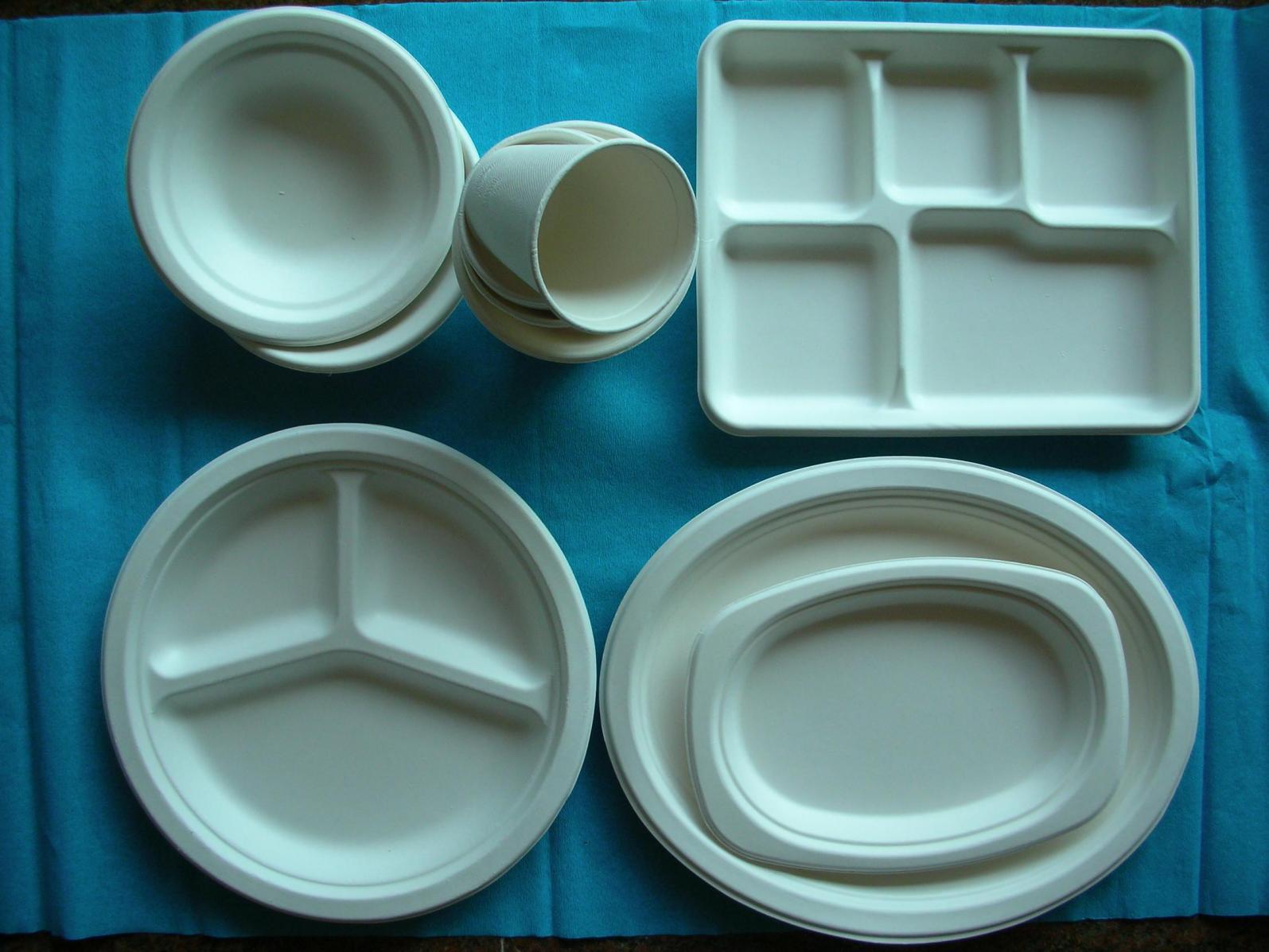
Analysis of paper pulp molding tableware coating prospect
2023-11-03 16:38
Pulp molded tableware is an environmentally friendly, degradable tableware, because of its sustainability and environmental protection, its prospects are very broad. The following is an analysis of the coating prospect of pulp molded tableware.
With the increase of global environmental awareness, people's demand for the use of degradable tableware is also increasing. The coating of pulp molded tableware can improve its water resistance and oil resistance, making it more suitable for use. Therefore, pulp molding tableware coating has great development potential in the context of increased environmental awareness.
With the support of government policies, governments in many countries and regions are promoting the use of environmentally friendly tableware and reducing the production of plastic waste by encouraging enterprises to use degradable tableware. The introduction of these policies will provide strong support for the development of pulp molding tableware coating.
With the increase of consumer demand, more and more consumers begin to pay attention to environmental and health issues, and they tend to choose environmentally friendly products. Pulp molding tableware coating can meet consumer demand for environmentally friendly products, so it is expected to be favored by consumers.
The continuous innovation of technology, pulp molding tableware coating technology in continuous innovation and development, its water resistance and oil resistance has been significantly improved. With the advancement of technology, the performance of pulp molding tableware coating will be better and can meet the needs of more scenarios.
Pulp molding tableware coating has a broad prospect of development. Driven by environmental awareness, the support of government policies and the increase in consumer demand, pulp molding tableware coating is expected to become the mainstream product in the future tableware market. At the same time, the continuous innovation of technology will further improve the performance and application range of pulp moulded tableware coating.

Pulp molding tableware main buyers:
Many restaurant businesses and chains use pulp-molded tableware because they are light and easy to handle and discard. These businesses often require large quantities of tableware, and pulp-molded tableware is an affordable option.
Airlines and hotels are also major buyers of pulp-molded tableware, as they require large quantities of tableware and require lightweight and easy to handle options while flying or traveling.
Pulp molded tableware is also a major buyer for food packaging companies, as they can be used to package and transport food. These companies often require large quantities of tableware and need them to be lightweight, easy to handle and discard.
Retailers and distributors are also major buyers of pulp-molded tableware, often selling it to consumers or other businesses.
Government agencies and non-profit organizations are also major buyers of pulp-molded tableware as they require large quantities of tableware for various events and projects. These organizations often have limited budgets, so pulp molded tableware is an affordable option.
The latest development of pulp molding machines
Pulp molding machine has developed rapidly in recent years, mainly in the following aspects:
Modern pulp molding machines are becoming more and more automated, and most of the operations can be completed through the control system, including feeding, molding, drying, cooling, packaging, etc. This not only improves production efficiency, but also improves production stability and product consistency.
With the continuous improvement of environmental awareness, the environmental performance of pulp molding machines has also been enhanced. Modern pulp molding machines use renewable resources, such as pulp, bamboo pulp, etc., and the products produced can also be recycled, reducing the impact on the environment.
The production capacity of modern pulp molding machines is getting stronger and stronger, and it can produce tableware, plates, bowls, cups and other products of various shapes and sizes. At the same time, it can also be tailored to the needs and requirements of customers.
With the continuous development of artificial intelligence technology, the intelligence of pulp molding machines is also improving. Modern pulp molding machines can be self-diagnosed and repaired by intelligent control systems, thus improving production efficiency and stability.
The structure of modern pulp molding machines has also been optimized, making the equipment more compact and occupying less space, while being easier to operate and easier to maintain and maintain.
PFAS problem of pulp tableware
Polymer fluorides (PFAS) are a class of chemicals that are widely used in many industrial and consumer products, including pulped tableware. However, PFAS are considered to be a chemical that is potentially harmful to human health. Here is some information about PFAS in pulp tableware:
PFAS can enter pulp tableware through chemical treatment during manufacturing, residues in packaging materials, and wastewater discharge.
There is scientific evidence that long-term exposure to PFAS is associated with a variety of health problems, including reduced immune system function, liver damage, and an increased risk of cancer.
PFAS have high environmental persistence and are difficult to degrade in nature. They can accumulate in soil and water bodies, posing a potential risk to ecosystems.
To reduce the potential risks of PFAS to human health and the environment, some countries and regions have begun to take steps to:
The European Union issued restrictions on the use of PFAS in December 2020. According to the regulation, from July 1, 2023, the PFAS content in pulp tableware must not exceed 0.1 micrograms per square centimeter.
The U.S. Environmental Protection Agency (EPA) has begun regulating PFAS and has established health and environmental standards for some PFAS compounds. Some states have also adopted further restrictions, such as California and Washington.
Some countries such as Sweden and Denmark have introduced measures to restrict the use of PFAS, including in pulped tableware.
Due to the potential risks of PFAS to human health and the environment, several countries and regions have taken steps to limit or reduce their use in pulp-based tableware. However, further scientific research and regulatory measures are still needed to address PFAS.
Get the latest price? We'll respond as soon as possible(within 12 hours)











